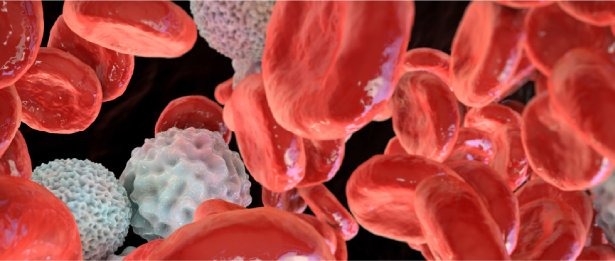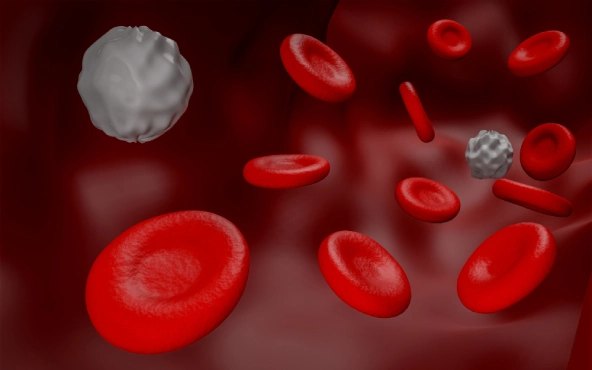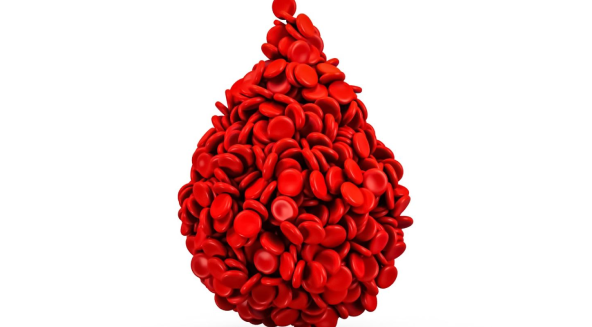Hematology
Hematology is the science that investigates life-threatening blood-diseases involving bone marrow, lymphatic system and blood such as lymphoma, multiple myeloma, acute and chronic leukemia.

Related Doctors
See All

Last Update Date: 10/8/2024 9:56:24 AM
Hematology is the science that investigates life-threatening blood-diseases involving bone marrow, lymphatic system and blood such as lymphoma, multiple myeloma, acute and chronic leukemia. Liv Hospital Hematology Clinic works in close cooperation with other branches such as medical and radiation oncology.
World-class Health Care
Our Hematology Clinic provides world-class, high-quality and reliable healthcare services with its experienced physicians and capable infrastructure.
What Diseases Does Hematology Address?
Hematology is the branch of medicine that studies blood, blood-forming organs, and blood disorders. Hematological diseases are caused by problems in the production, function, or structure of blood cells. Some of the key conditions include:
- Anemia: A condition characterized by a deficiency of healthy red blood cells in the blood. Various types of anemia such as iron deficiency anemia, vitamin deficiency anemia, and thalassemia fall under the scope of hematology.
- Leukemias: A type of cancer resulting from the uncontrolled proliferation of blood cells in the bone marrow. Examples include acute myeloid leukemia (AML), chronic myeloid leukemia (CML), acute lymphoblastic leukemia (ALL), and chronic lymphocytic leukemia (CLL).
- Lymphomas: Cancers originating from lymphatic system cells. Hematologists assess and treat Hodgkin lymphoma and non-Hodgkin lymphomas.
- Multiple Myeloma: A cancer type that arises from plasma cells and affects the bone marrow.
- Thrombocytopenia: A condition where the blood has a lower than normal level of platelets (clotting cells).
- Hemophilia and Other Coagulation Disorders: Genetic or acquired conditions that affect the blood’s ability to clot.
- Myeloproliferative Diseases: Conditions involving the excessive production of blood cells in the bone marrow. Examples include polycythemia vera and primary myelofibrosis.
- Immune Thrombocytopenic Purpura (ITP): A condition where the immune system attacks platelets, leading to low platelet levels.
- Immunodeficiency Disorders: Issues related to the immune system and conditions requiring bone marrow transplantation.
- Aplastic Anemia: A condition where the bone marrow fails to produce adequate blood cells.
- Bone Marrow Transplant and Stem Cell Therapy: Treatments involving bone marrow transplants or stem cell therapy for certain cancers or blood disorders.
Disease That are Primarily Treated:
- Anemia, bone marrow deficiencies
- Diseases such as sickle cell anemia, Mediterranean anemia (thalassemia)
- Bleeding and clotting disorders
- Blood cancers
- Leukemias
- Multiple myeloma
- Primary amyloidosis
- Thrombocytopenia
- Hodgkin's and Non-Hodgkin's lymphomas
- Acute and chronic leukemias (AML, ALL, CML, CLL)
- Myelodysplastic syndromes, bone marrow, blood and lymph gland diseases such as myeloproliferative diseases
- Immunological diseases
Medical Technologies
Liv Health Guide
Check out our health blog! Discover the variety of rich and up-to-date contents!
weight loss
infections
feeling full
pain in the bones and joints
lymph cancer
neck
arm pits
groin
vessels
Close
Contact Us to Get Information!
Please fill your firstname and lastname.
Please Enter a Valid Phone Number
All Hospitals

Liv Hospital Ulus
Liv Hospital Vadistanbul
İSÜ Liv Hospital Bahçeşehir
Liv Hospital Ankara
Liv Hospital Gaziantep
Liv Bona Dea Hospital Bakü
Choose Hospital
Please fill your e-mail.
Please Write a message.
Please Check KVKK.
Submit
Thank you for your feedback!
Close











.png)

